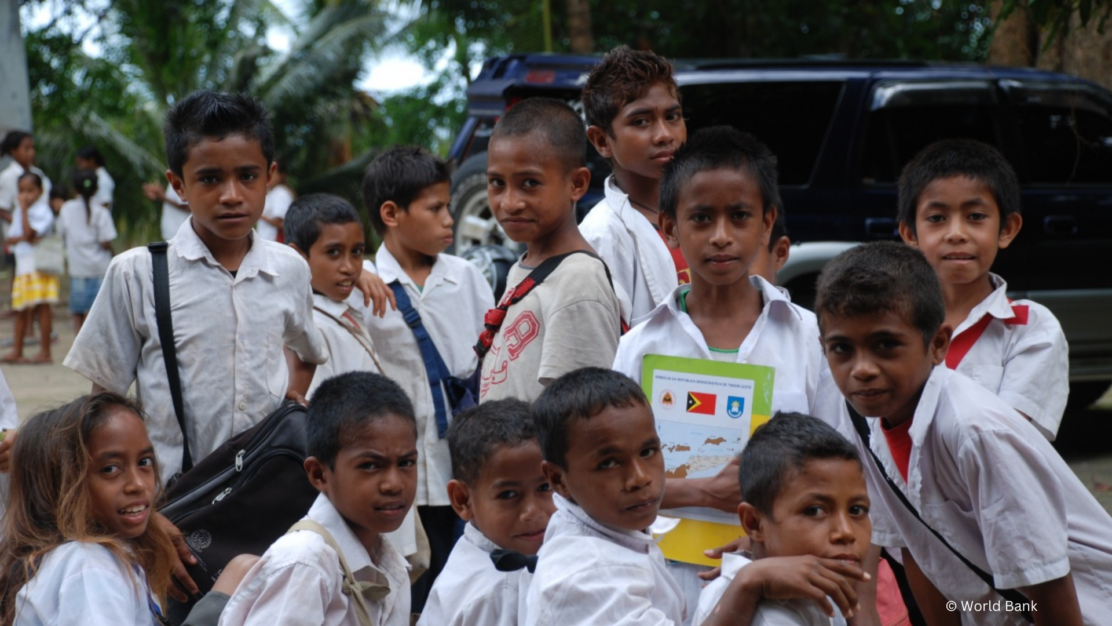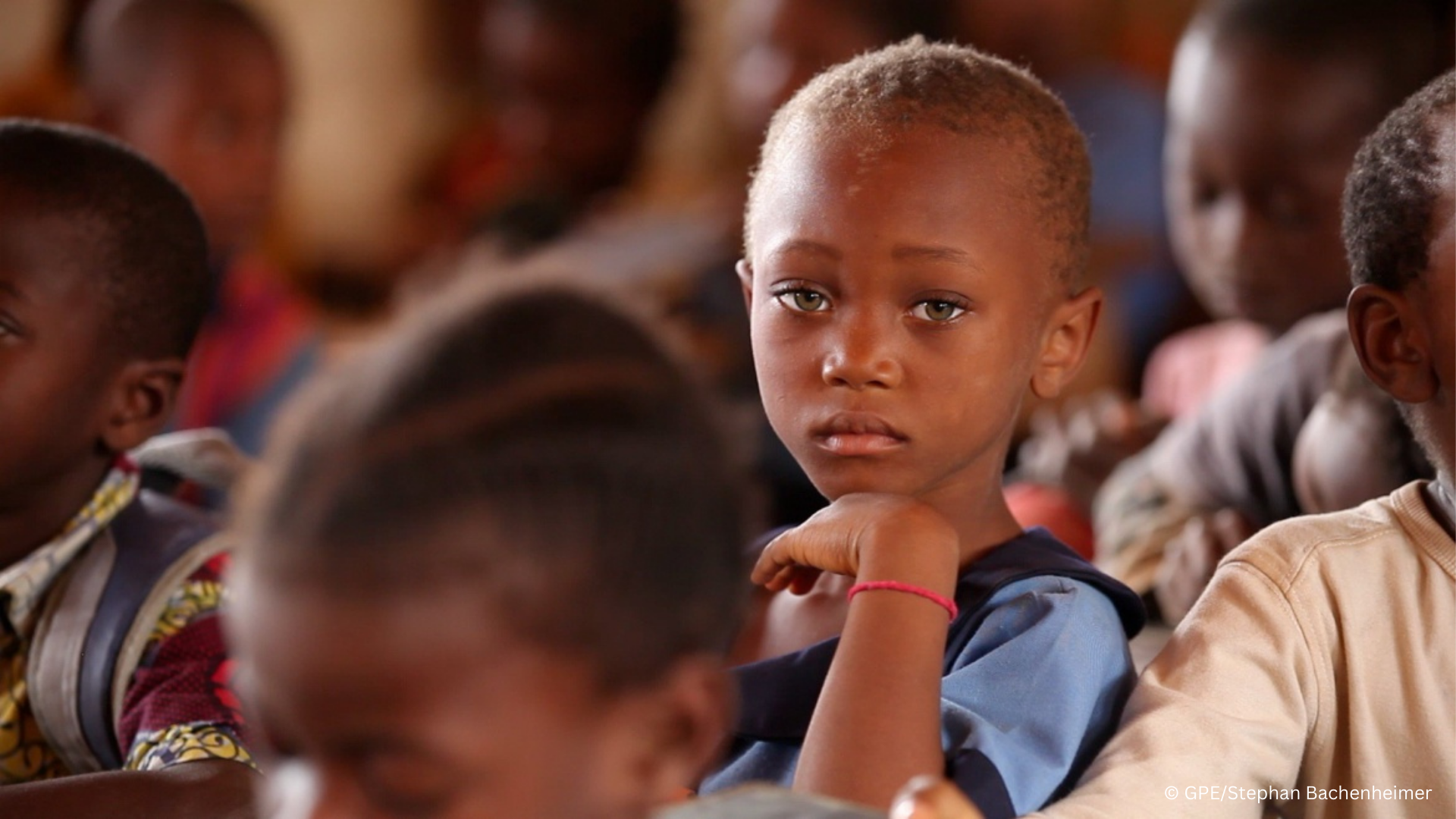Building a More Peaceful Future Through Education
This blog was originally published by the Global Partnership for Education.
A new study by the Institute for Economics and Peace and GPE shows how inclusive and quality education can contribute to build peaceful societies, and why it’s urgent to invest in education.
Education has long been regarded as the cornerstone of development. However, in the current global context, its role in shaping peace within and across countries is a topic of increasing importance.
Education is not merely a means to individual growth; it is a powerful tool that can influence the future trajectory of societies. If inclusive and of quality, it promotes understanding, tolerance, and peaceful coexistence among individuals and communities.
Moreover, education holds the potential to reduce the likelihood of conflicts by fostering critical thinking, encouraging open dialogue, and creating economic growth opportunities.
A new study to show the links between education and peace
A new study by the Institute for Economics and Peace (IEP) and the Global Partnership for Education (GPE) has reaffirmed the potential for education to build peaceful societies. While the detrimental effects of conflicts and protracted crises on education are well- known, this study delves into the relationship between education and peace based on an extensive literature review of quantitative studies.
It also develops a regression model to better understand this relationship. While the results of this study cannot be interpreted causally, there are a number of statistically significant correlations that associate education with more peaceful and stable societies.
Conceptually, peace is difficult to define, often described as what it is not, i.e., the absence of war. While this definition is useful, IEP broadens this definition to encompass the attitudes, institutions, and structures that create and sustain peace, known as “Positive Peace”.
There are eight dimensions or “Pillars” of Positive Peace. Education is the cornerstone of the High Levels of Human Capital Pillar, which has a strong positive correlation with every other aspect of Positive Peace.

For more than two decades, GPE has been at the forefront of advocating for and financing transformative education systems, empowering countries to tap into the opportunities of the 21st century.
As the only partnership and fund exclusively dedicated to ensuring quality education in lower-income countries, including those affected by conflict, GPE has been leveraging more and better financing, including from domestic and international resources, so no child is left behind.
But recent events, like the COVID-19 pandemic and growing global political instability, coupled with tightening economic conditions and an over reliance on debt financing, have significantly shrunk the fiscal space for education. As a result, education remains one of the most under-invested sectors.
The critical urgency of investing in education
This is a significant missed opportunity especially as the urgency of building peaceful and sustainable societies grows day after day. The study indicates that higher government spending on education is correlated with fewer and shorter conflicts.
There is also a correlation between increased education spending and a reduced economic impact of violence. Simply put, investing more in education can foster economic growth and social equality, which, in turn, are associated with a decrease in conflicts.
Failure to invest in education is a costly and dangerous mistake.
We urgently need to invest in education so:
- Children complete education: the study highlights that higher rates of both primary and lower secondary school completions show positive correlations with factors known to create and sustain peaceful societies. This offers multiple causal pathways for education to indirectly improve peacefulness and reduce conflict. Timor Leste has transitioned from conflicts to stability, with the withdrawal of UN peacekeeping forces in December 2012 and successful competitive elections and peaceful transfers of power, most recently in 2022. Concurrently, school completion rates for lower secondary education rose significantly from 67% (2010-2015) to 91% (2017-2022). This progress, supported by over $32 million from GPE since 2006, suggests a parallel between educational advancement and peace stabilization.
- All children complete education: Countries with higher rates of school completion for girls, particularly at the secondary level, show lower levels of conflict. This emphasizes the importance of gender equality in and through education that not only empowers women but also contributes to peace. Youth engagement in education, employment, or training is also a critical factor. A higher proportion of youth not engaged in these activities are associated with less overall peace and more conflict. This relationship is particularly pronounced among female youths not engaged in employment, education, or training. GPE sees gender equality as a central priority to leave no one behind. GPE supports countries to systematically identify and address the barriers to education that affect boys and girls differently.
- All children complete quality education: While the number of years spent in education has the potential to reduce the number of conflicts, the quality of education plays a pivotal role in conflict patterns. The study reveals that countries with higher learning-adjusted years of schooling experience fewer conflicts and an increase in safety and security. For example, Cameroon has grappled with multiple crises, including violent conflicts and rising ethno-political tensions that have caused displacement and instability. But the country has made significant strides in strengthening reading proficiency: from 2010 to 2022, the levels rose from 29% to 39% for grades 2 and 3 and from 24% to 30% by the conclusion of primary school. The GPE support has been instrumental, contributing over $190 million since 2007 including investment in foundational learning (reading with comprehension, mastering basic math, resilient socio-emotional skills). Foundational learning not only improves the skill set within the population, but can also increase cooperation among individuals, which could lead to greater peacefulness.
Education is at the core of achieving all Sustainable Development Goals (SDGs).
Limited access to quality education is not just a missed opportunity; it can actively seed divisions, tensions, and conflicts. When education is unequal, the ground is fertile for grievances and unrest. Yet, there is a clear path forward.
Investing in quality education for every child is our most sustainable and pressing obligation, especially in the face of global challenges like climate change and economic prosperity. Both are intrinsically linked with peace and stability.
Education is not just one of many priorities, it is the foundational pillar that will determine the success of all Sustainable Development Goals.
About the Authors:
Michael Collins, Executive Director, Americas, Institute for Economics & Peace
Michael is responsible for expanding IEP’s presence and impact in the Americas and the adoption of IEP’s Positive Peace Framework as an evidence-based tool for effective peace-centered development.
Prior to joining IEP, Michael helped develop and oversee educational and job creation programs in emerging nations, working frequently in communities affected by natural disasters, poverty, and gang violence. Prior to pursuing a career in the non-profit sector Michael managed a construction firm. He studied electro-mechanical engineering and lives in Long Branch, New Jersey with his wife and two children.
Raphaelle Martinez, Team Lead – Education Policy and Learning, GPE Secretariat
Raphaelle Martínez joined the GPE secretariat in 2013. She leads the Team on Policy and Learning, whose mandate is to mobilize and disseminate evidence and practices in the field of system strengthening, teaching and learning, as well as equity and inclusion. Previously, Raphaelle was a Senior Education Specialist in charge of planning, finance and systems as part of the GPE Strategy, Policy and Performance team; She worked for two years as a country lead for eastern and southern African countries. She has been working in the field of education for 15 years, of which 10 were as an education planning specialist at UNESCO headquarters and in member countries. Raphaelle is a national of Argentina and holds a Masters of Political Science and Public Policies, as well as a Masters of Education Policies and Planning from the Sorbonne University in Paris.

